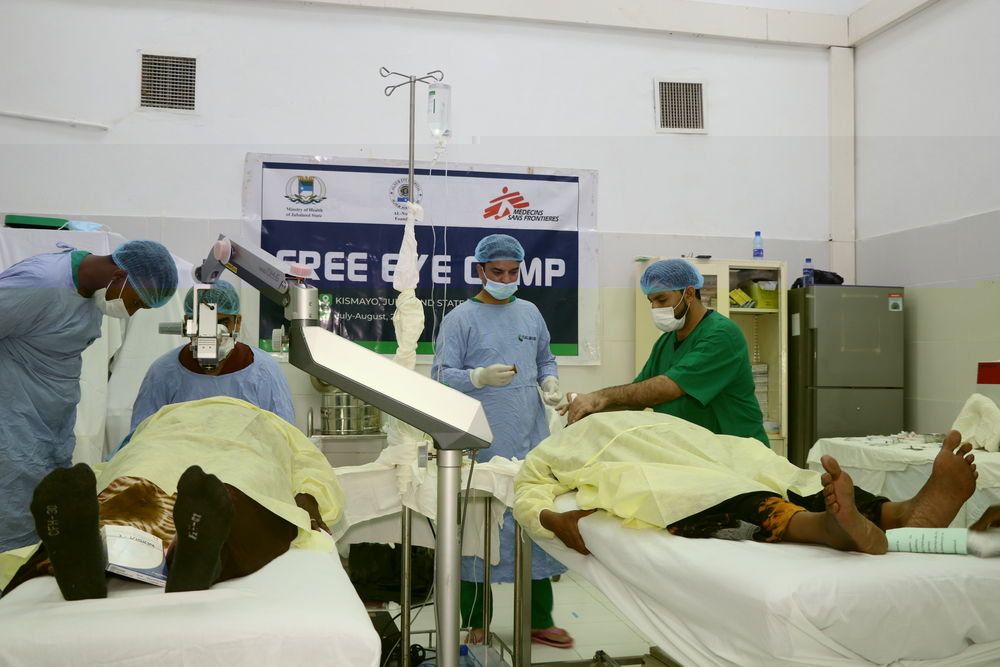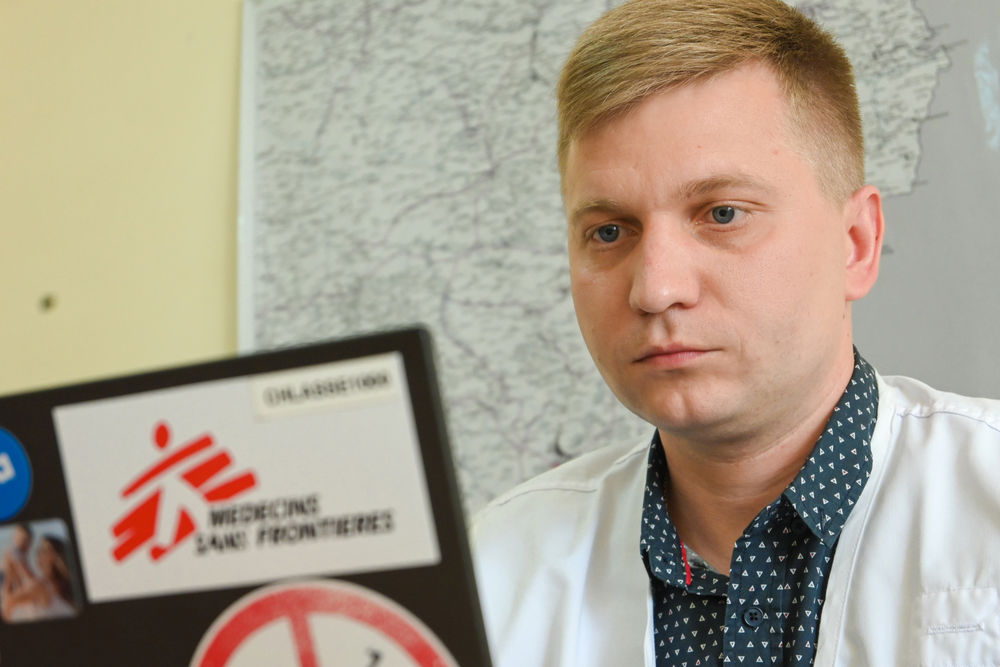Helping people restore their eyesight helps them regain their independence
The idea for the eye camps came about through our work in various communities in Somalia. We knew that there were a lot of eye ailments, and it became clear that most people were not getting treatment for these problems.
Security is difficult in most areas and it’s not easy to move around. While health services are often available in larger urban centres, people living further out can’t access these services.
Imagine you’ve got cataracts, which is a very common problem. If you’ve got money, maybe you’ll travel to the capital, Mogadishu, and get the surgery done in a private facility. But if you live in a remote area, there’s a good chance you won’t even have received a correct diagnosis and have simply been labelled as somebody who is blind. Even if you are diagnosed correctly, it can be difficult to find money to travel to the city, or to pay for surgery when you get there.
With the original eye camps, it was these people we were determined to help: the ones with few other options to access care. That aim has continued with all the eye camps that MSF has run.
Treating cataracts
At the eye camps, we treat a variety of eye ailments, from schoolchildren who need corrective lenses through to people with eye infections requiring antibiotics and more difficult-to-treat conditions like glaucoma and cataracts. All services are provided free of charge.
A cataract occurs when the natural lens in your eye becomes cloudy over a period of time. This cloudiness results in blurred vision and, if it isn’t corrected, in complete blindness in the affected eye(s). It’s a serious condition that has a massive impact on people’s livelihood, their social functioning, their general wellbeing and their quality of life. We were seeing people in Somalia with cataracts in both eyes who had lived with them for years. It wasn’t just old people, either. Cataracts affect a broad spectrum of people, both young and old.
Luckily, the surgical procedure to correct cataracts is relatively straightforward. With an incision, the surgeon removes the natural lens and replaces it with an artificial one, which will then remain clear for the rest of the patient’s life. The procedure takes less than half an hour. Then, after several days of recovery, the patient’s vision can return to almost perfect levels. We’ve been able to conduct three to four hundred surgeries during each of the eye camps we’ve supported.
The results we’ve seen have been absolutely amazing. During a recent evaluation, we were nicely surprised by the vast majority of positive responses provided by the surgical beneficiaries we surveyed. We heard moving stories of people who hadn’t been able to leave their house due to limited vision, but after the surgery, could now go and visit friends, more easily find work, regain their sense of independence and feel like they were part of the community again.
For me and the team, it was just satisfying to see an MSF project with such high impact, particularly among people who really don’t have a lot of options. What’s exciting about these eye camps is just how tangible the results are. It’s not complicated work but, for the people treated – whether that’s somebody with cataracts or a child who can now see properly at school – it’s completely lifechanging.
We’re targeting people who need the service and the outcome of the intervention is just massive. Imagine gaining your sight back!
To support the eye camps, we’re working with local partners. In addition to the actual services provided, student doctors are also invited to attend so that they can learn surgical techniques from the more experienced doctors who led the team. It’s a real investment in the future of human resources for health in Somalia.
For me, the camps really show that, in places where MSF teams have a longer-term presence, emergency medicine is not necessarily the only important health priority for the communities we work with. Not being able to see, not being able to work, not being able to leave your house is also devastating for people’s life and health.”
*First-person piece of Doug Lau, MSF’s epidemiologist for the Somalia eye camps



